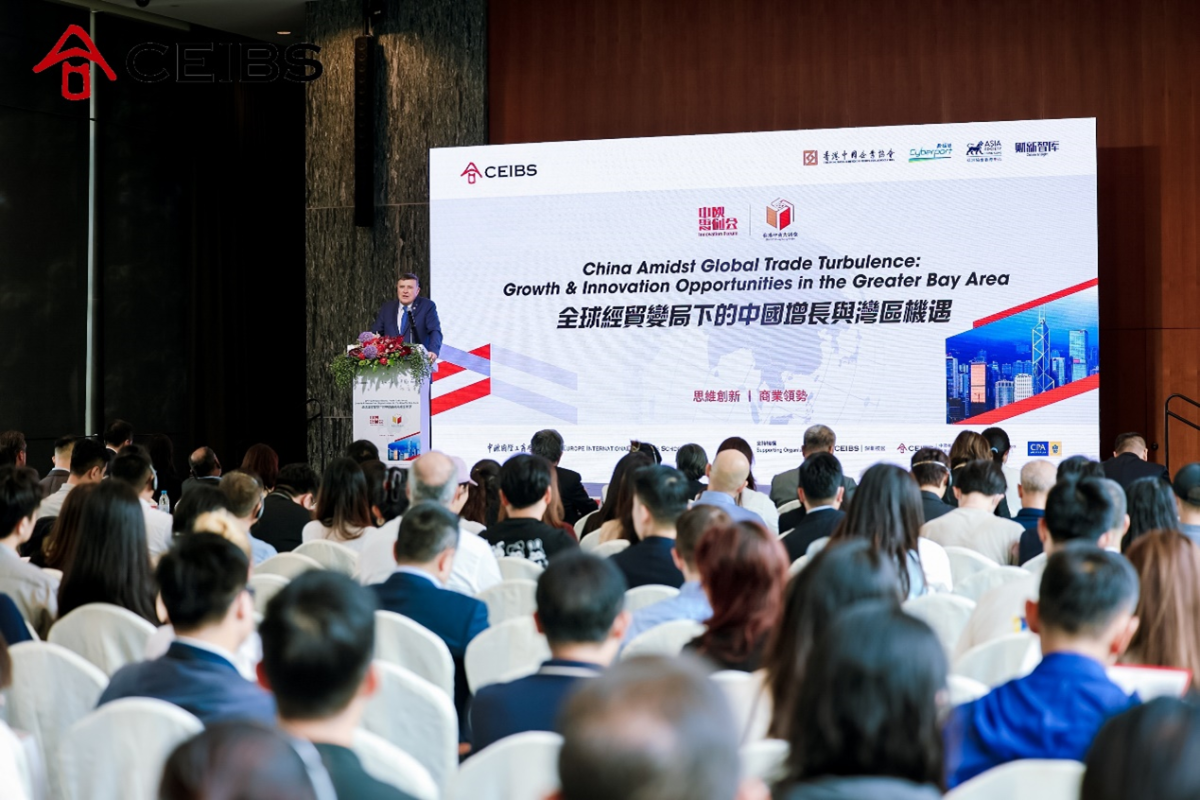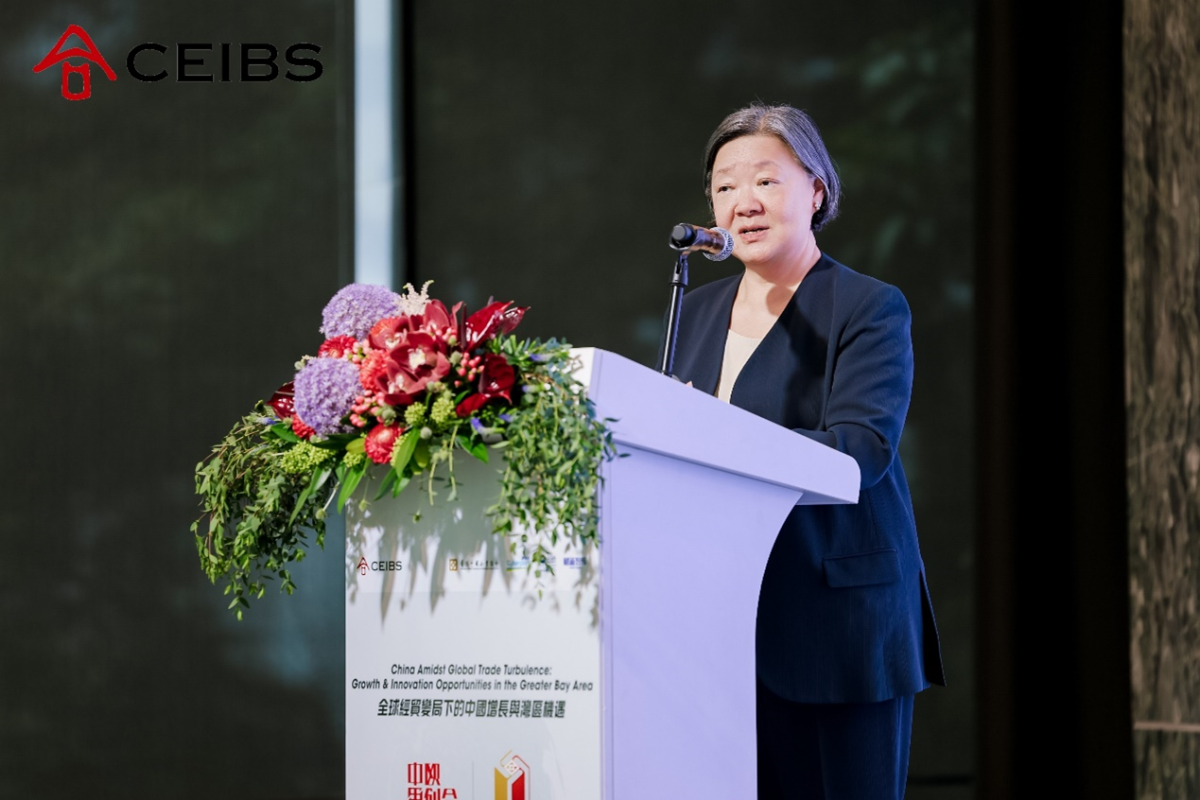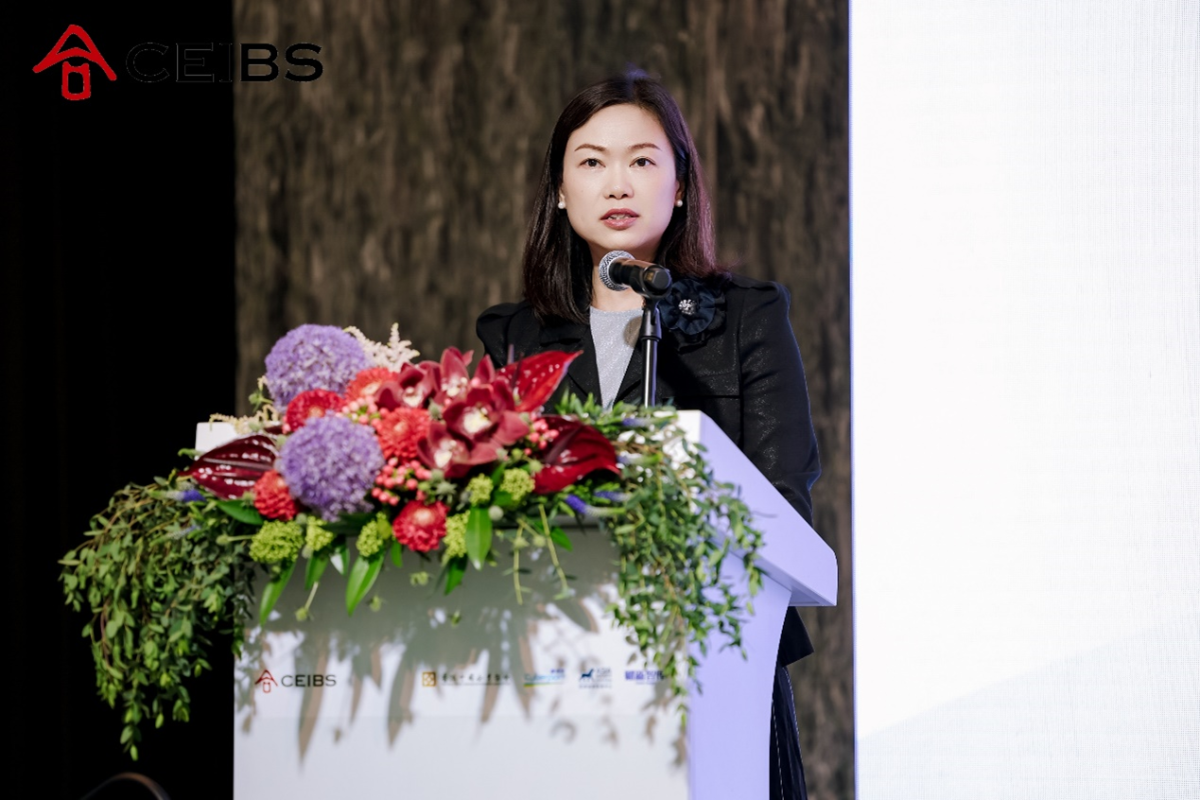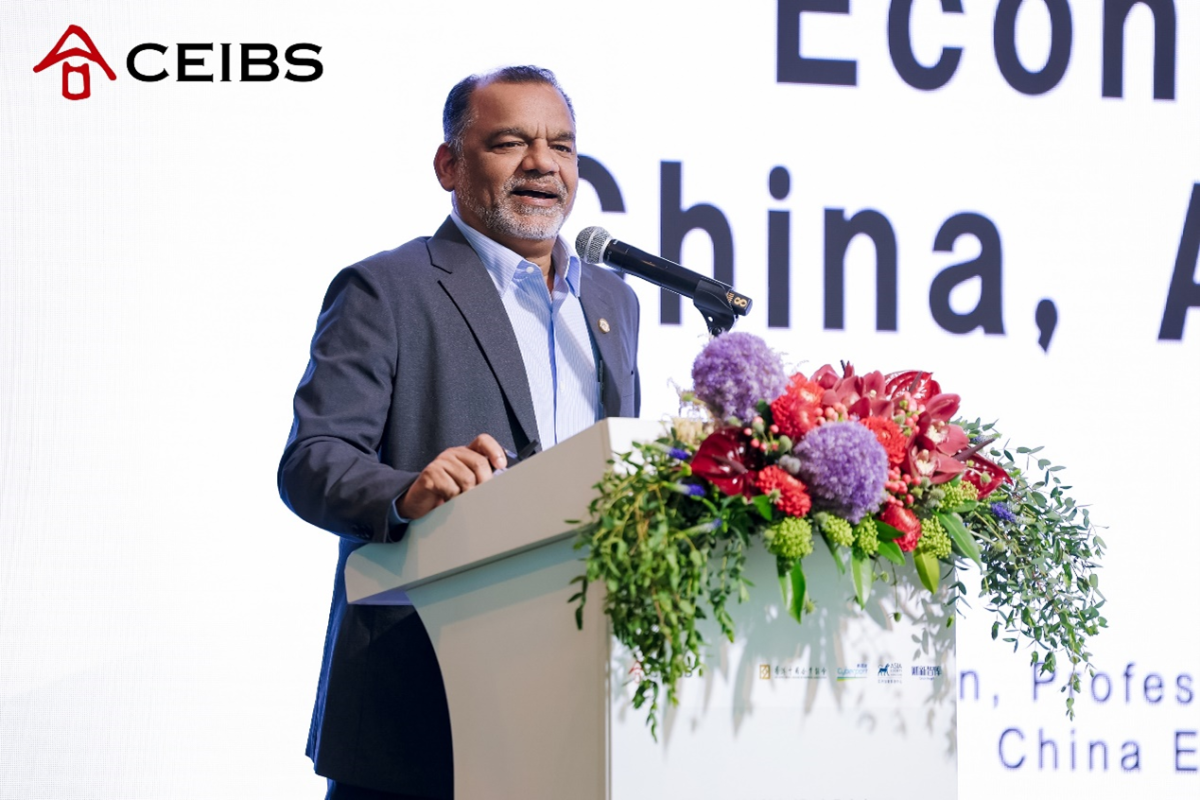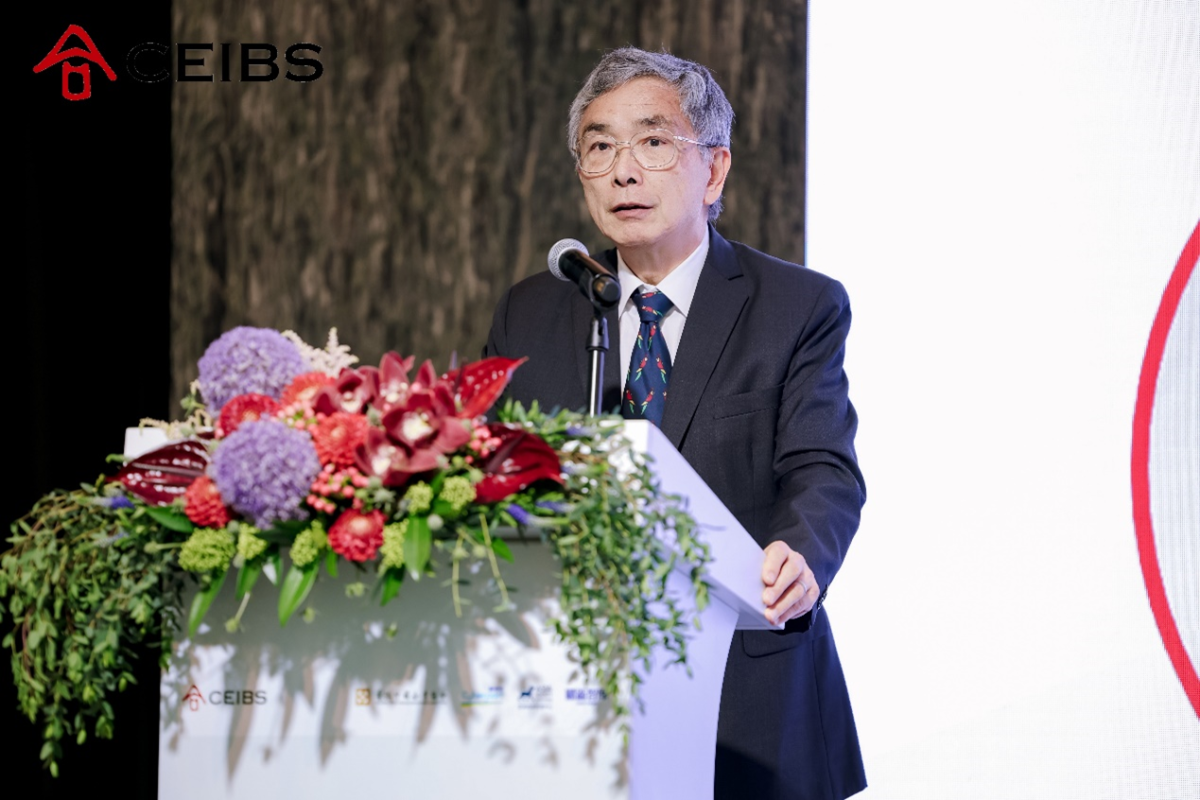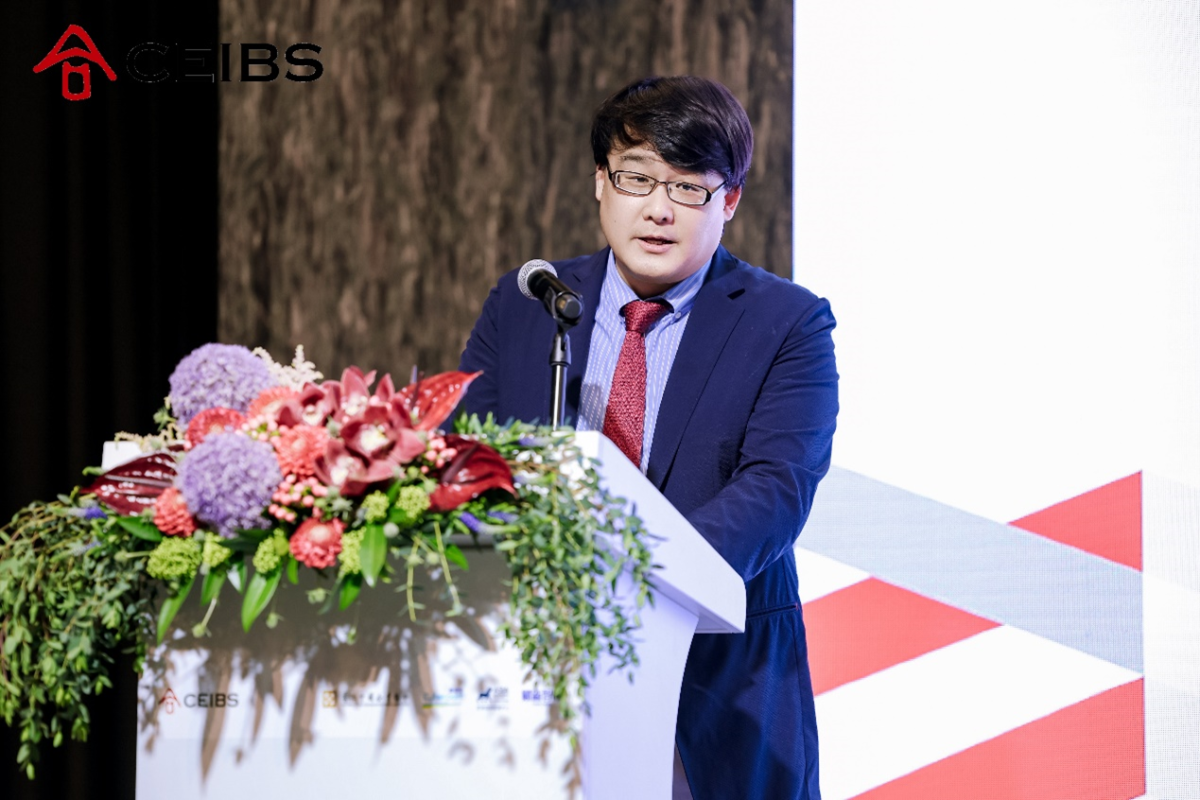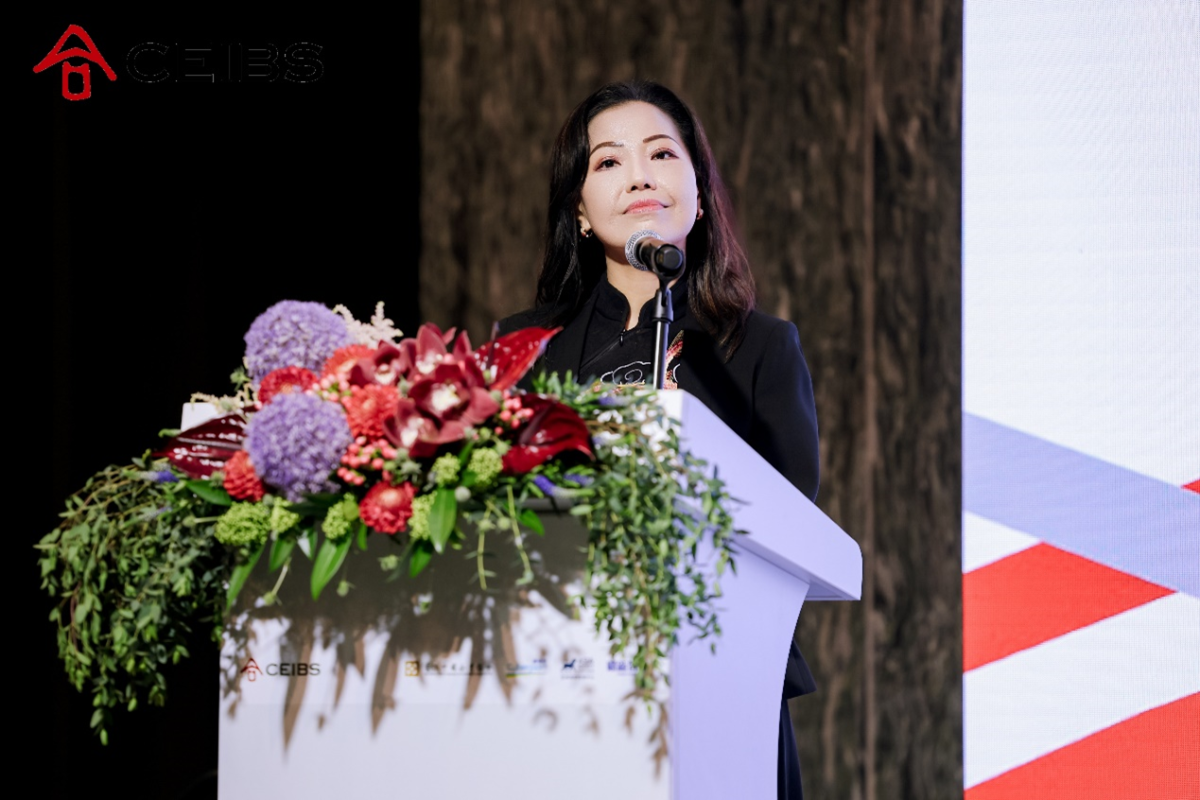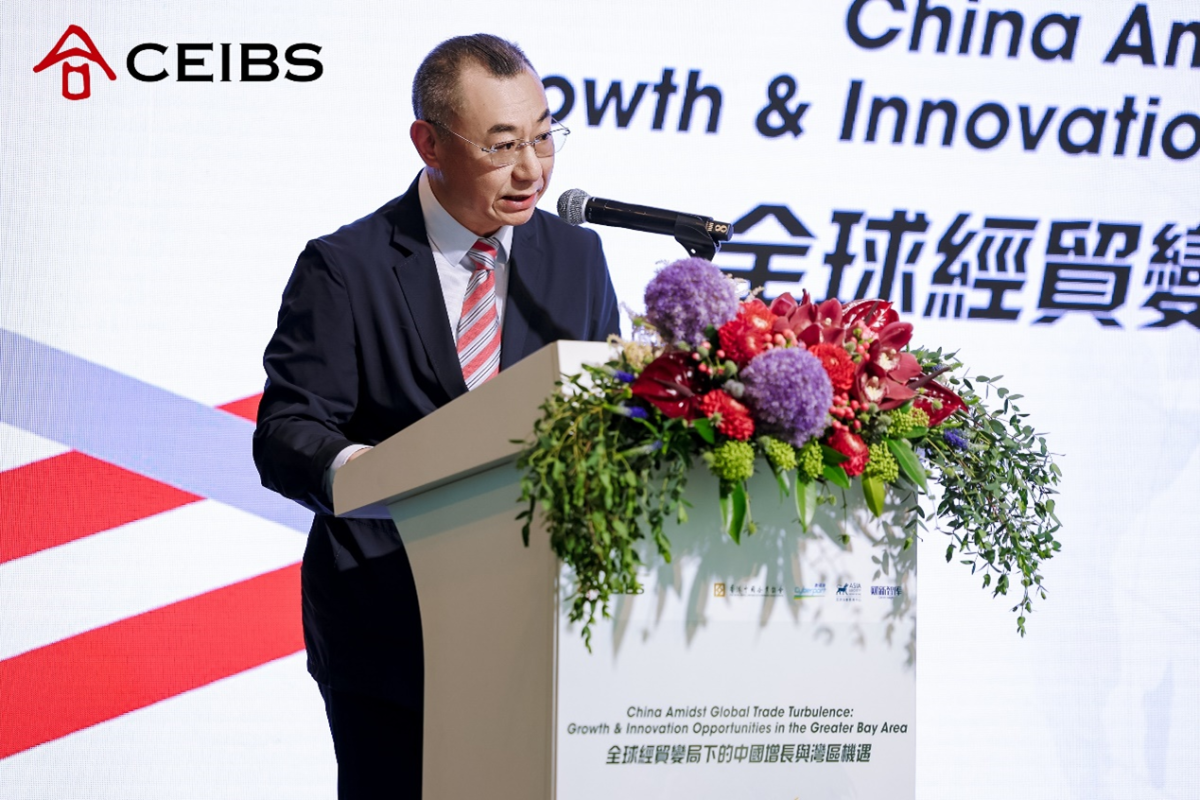Leveraging Hong Kong’s unique advantages and China’s innovation ecosystem key to realising city’s future potential
June 12, 2025. Hong Kong – If it can effectively leverage China’s emerging enterprises and its own unique position as a conduit between the country and its trading partners, Hong Kong can emerge as a beneficiary rather than a victim of international trade upheaval, according to comments made by leading economists, business executives and government figures at a forum held in the city today.
The reshaping of the global economic order, seismic changes in international trade, and rapid technological developments are posing urgent questions for nations of all sizes, particularly China. For decades, Hong Kong has served as both a vital gateway into the country and Asia’s financial hub. Yet, as global and regional dynamics shift, the city's future trajectory is far from certain. What remains clear is that Hong Kong’s prospects are closely intertwined with developments in China overall. What will Hong Kong’s place be in this new global era? How can it leverage its unique strengths to secure long-term growth and resilience? Can further integration into the Greater Bay Area, and China’s rapidly advancing technology industries, drive new development for the city?
Aiming to answer these urgent questions, the CEIBS Innovation Forum Hong Kong was held today by China Europe International Business School (CEIBS) on the theme “China Amidst Global Trade Upheaval: Growth & Innovation Opportunities in the Greater Bay Area”. Co-hosted by Hong Kong Cyberport, The Hong Kong Chinese Enterprises Association, Asia Society Hong Kong Center, and Caixin Insight, and supported by institutions including CEIBS Shenzhen Campus, CEIBS Alumni Association Hong Kong Chapter, The British Chamber of Commerce in Hong Kong, and CPA Australia, the forum gathered roughly 300 leading figures from government, business, and academia to explore, through cutting-edge insights and dynamic dialogues, Hong Kong’s future in an increasingly uncertain world and its unique potential role in China’s future development. The forum was hosted by Hobbs Liu, Assistant President of CEIBS and Chief Representative of CEIBS Shenzhen Campus.
Frank Bournois, CEIBS Vice President and Dean and Michelin Chair Professor in Governance and Leadership, delivered the first welcome address of the event. He noted that 37 years ago, China established the Torch Programme, a national strategic initiative aimed at developing high tech industries, resonating strongly with the theme of the forum. Elaborating on the nature of the event, Prof. Bournois said “We are here because of our mission, which is developing talent; and Hong Kong is a place, within the Greater Bay Area, where the development of talent is both a beacon and a bridge.” Connecting Hong Kong’s unique global position with that of CEIBS itself, he added, “bridging is something we do a lot at CEIBS; we bridge ideas and action, we bridge different business sectors, and we are here today to bridge Hong Kong, the Greater Bay Area, China, Asia, and the world.” Ultimately, he concluded, “this event is a demonstration of CEIBS’ commitment to Hong Kong and its business community.”
S. Alice Mong, President of Asia Society Hong Kong Center, then delivered a second welcome address. Noting that this year is the 35th anniversary of Asia Society’s establishment, she drew parallels between the organisation’s goals and those of CEIBS, highlighting that both are committed to providing a platform for exchange between China and the world, developing future talents, and fostering mutual understanding. Ultimately, she said, “it is by building understanding that we can solve the world’s problems.”
This was followed by an opening address by Maggie Wong, Permanent Secretary for Commerce and Economic Development of The Government of the Hong Kong Special Administrative Region. She noted that, while over the years some have predicted Hong Kong’s decline, they have been proven wrong, adding that the city's continued prominence “is not chance or luck, but a testament to the city’s enduring resilience and spirit.” She further elaborated on Hong Kong’s unique advantages as an international hub with strong backing from Mainland China; the city’s entrepreneurial spirt and skilled bilingual workforce; a conducive business environment; a simple tax regime; and a transparent intellectual property framework. Looking to the future, she asserted that Hong Kong will proactively expand its involvement in global trade and seek to leverage China’s “Dual Circulation Strategy”, specifically mentioning the city’s active promotion of its own high value-added supply chain services mechanism, a strategy designed to attract Mainland enterprises to establish international or regional headquarters in Hong Kong by providing one-stop advisory services on global expansion.
Professor Bala Ramasamy, CEIBS Associate Dean, Professor of Economics, and Director of the Global EMBA (GEMBA) Programme, then delivered a keynote speech titled "Economic Outlook: China, Asia & the World". He began by emphasising the now firmly established presence of global uncertainty, drawing on sources including the Stanford Institute for Economic Policy Research’s World Uncertainty Index and an analysis of Financial Times reporting over time, ultimately asserting that “the only thing certain in this world is uncertainty, and as managers, we need to learn to live with this.” Prof. Ramsamy built on this theme by helpfully outlining facets of the future that we cannot know – including who the next president of the US will be in 2029, the outcome of US midterm elections in 2027, developments in the international relations environment, whether developing nations will “choose” the US or China, and the development of the US economy – along with developments that can confidently be predicted – namely the continuation in China of leadership by the Communist Party of China, the continuation of the country’s government and economic system, a continuation of government involvement in the Chinese economy through state-owned enterprises, China's continued success in innovation and place at the forefront of cutting-edge technology, growth in Chinese domestic consumption, and the continuing development of China’s domestic market providing a daunting challenge to multinationals attempting to enter the country.
Elaborating on the prospects for China’s economy, Prof. Ramasamy noted that many economists are currently calling for the country to pivot towards domestic consumption, which still represents a relatively small share of GDP compared to exports. He expressed optimism, however, going on to say that recent leadership speeches at the country’s important Two Sessions economic policy event placed much more emphasis on domestic consumption than in previous years, and that data shows the expenditure of Chinese consumers has been increasing, adding that “even though we want it to increase more and ‘replace exports’ to some extent, it will continue to increase; my point is that the cup is actually half full, and we are getting there.” He went on to highlight services, as opposed to goods – e.g. hotels, spas, sports club memberships, and education – as key potential drivers of consumption growth.
In the final section of his presentation, Prof. Ramasamy asserted that the globalisation of supply chains is no longer feasible in today’s more fragmented world, outlining a new alternative to the much discussed "China +1” strategy: an “In China, for China and the World (-1)” strategy, based on the establishment of distinct supply chains for China and the rest of the world on the one hand and the US on the other, given the latter’s protectionist turn. Concluding with thoughts on potential opportunities for Hong Kong, Prof. Ramasamy said that “just as Hong Kong helped international companies enter China, it can now grow into a role helping Chinese companies go abroad; when these companies are successful, China will be successful.”
A second keynote speech, on the theme “Re-emergence of Hong Kong at the Crossroads”, was delivered by Lau James Henry Jr., Former Secretary for Financial Services and the Treasury of The Government of the Hong Kong Special Administrative Region and Chairman of the Board of PAO Bank Limited. He began by outlining the daunting challenges faced by Hong Kong and the world, including post-COVID economic development and recent trade upheaval driven by the US, before striking a more optimistic tone, saying that “China and Europe can join hands to make a difference, to make the world a better place – and Hong Kong has a role to play.” Referencing the acronym VUCA, which stands for Volatility, Uncertainty, Complexity, and Ambiguity, Mr. Lau expressed his hope that, through areas of common cause such as the fight against climate change and the regulation of AI, China and Europe could contribute to a new VUCA world, defined by Vision, United effort, Communication, and Adaptability and Agility.
Mr. Lau then outlined the headwinds buffeting the global economy, noting that OECD forecasts predict global increases in inflation and depressed global growth if tariff measures fully take effect. He then went on to explore how contrary to many expectations, while the US-China trade conflict has gotten worse, Hong Kong may get a boost rather than be hindered by economic tensions, due to its unique position as China’s most important window to the world of international finance, with the city's emergence as a bulwark against aggressive US trade policy strengthening its global position.
Expressing optimism for Hong Kong’s prospects, he then highlighted the city’s Hang Seng Index stock exchange’s recent 16% rally, outpacing the SMP 500, led by the listing of China’s CATL (the biggest listing of 2025 so far); tax law changes designed to attract family offices to Hong Kong; the development of a platform for overseas companies to redomicile in Hong Kong while preserving legal identity and business continuity; productive engagement with regions like the Middle East; and the introduction in May 2025 of a licencing regime for stablecoins issuers, aimed at strengthening stability and encouraging financial innovation. “Suffice to say,” Mr. Lau said, “Hong Kong is pursuing a vast array of developments to keep the city apace with international financial and technological developments, to support our remaining among top three international financial centres in the world.”
The event then proceeded to a panel discussion centred on the theme “Integrating Science and Technology Innovation in the Greater Bay Area: Challenges & Opportunities”, moderated by Prof. Frank Bournois. An enlightening and insightful exchange of ideas, the panel hosted: Bryan Peng, Executive Director of the Office for Attracting Strategic Enterprises of The Government of the Hong Kong Special Administrative Region; Shirley Shen, Chairman of Morgan Stanley Futures (China) Co., Ltd., Head of Onshore Equities for China of Morgan Stanley, and CEIBS alumna; Gao Teng, Chief Executive Officer of the Hong Kong Microelectronics Research and Development Institute (MRDI) and CEIBS alumnus; Mark Mak, Co-Founder and Chief Technology Officer of Roborn; and Liang Rui, Vice President and Chief Sustainability Officer of Sunwoda Electronic Co., Ltd. and CEIBS alumnus.
The panel discussion was followed by a closing address from Gao Erji, Vice President of Caixin Media and Executive President of Caixin Insight, who opined that the event “perfectly demonstrates Hong Kong’s unique position as a convergence point of academia, government, and business.” Highlighting CEIBS’ ability to help organisations like Caixin Insight gain awareness of frontier business research, and Caixin Insight’s goal to act as a hub where Chinese innovation meets global practice, he passionately added that “Hong Kongs true strength lies not in its iconic skyline, but in its unparalleled ability to connect, bridging capital with ideas and China with the world.”
The event then concluded with a final closing address from Georgina Chu, Chief Corporate Development Officer of Hong Kong Cyberport Management Company Limited. Highlighting the city's role as a "super connector" and "super value adder", she expressed her belief that digital transformation holds the key to the city’s resilience and competitiveness. Adding that, as a state-level incubator, Hong Kong Cyberport has supported over 2,200 startups and technology companies, she set out a vision of Hong Kong as “not just a financial hub, but a catalyst of the world’s digital future.”
In the days leading up to the event, Vice President and Dean Professor Frank Bournois along with a delegation of senior CEIBS representatives visited the Hong Kong offices of Goldman Sachs to explore potential avenues for future collaboration; the delegation also visited the Hong Kong Cyberport business park, information technology company iFLYTEK, and artificial intelligence solutions enterprise Votee AI. These company visits highlight CEIBS’ mission to develop responsible future leaders and the strong emphasis the school places on forging close partnerships with the business community, ensuring that its teaching and research remain grounded in real-world business challenges and deliver tangible value to enterprises.
China Europe International Business School (CEIBS)
China Europe International Business School (CEIBS) was jointly established in 1994 by the European Union and the Chinese government and remains the only business school in China founded through government-to-government collaboration. Guided by its motto of “Conscientiousness, Innovation, and Excellence,” CEIBS is committed to developing responsible leaders equipped with “China Depth, Global Breadth”. The school has established a global footprint across five locations on three continents—Shanghai, Beijing, and Shenzhen in China; Zurich in Switzerland; and Accra in Ghana—becoming a top-tier business school in Asia and a globally recognised institution. CEIBS also serves as a bridge for economic and cultural exchange between China, Europe, and the wider world. The school offers a wide range of programmes, including a full-time English-language MBA, Finance MBA (FMBA), Global Master in Management (Global MiM), EMBA, Global EMBA (GEMBA), Hospitality EMBA (HEMBA), Doctor of Business Administration (DBA), PhD, and Executive Education (EE) courses. CEIBS was the first business school in mainland China to earn accreditation from both the European Quality Improvement System (EQUIS) and the Association to Advance Collegiate Schools of Business (AACSB). For nine consecutive years, CEIBS has been ranked the No.1 MBA programme in Asia in the Financial Times Global MBA Ranking, while its Global EMBA programme is currently ranked No.1 in the world in the Financial Times EMBA Ranking.
CEIBS Innovation Forum
The CEIBS Innovation Forum series was launched in 2015 and is committed to promoting the integration of knowledge and practice, while serving the transformation and development of business in China. The series provides insights into current business and economic trends with a focus on topics relevant to urban and regional development. To date, over 50 events have been held in 30 cities around China, where more than 300 speakers have contributed their views.
In addition to the Hong Kong Innovation Forum held today, in 2025 the 10th Innovation Forum series will continue with Chinese-language events in Guiyang, Hohhot and Suzhou, following previous successful Chinese-language forums in Hefei and Zhengzhou and an English-language forum in Beijing.







